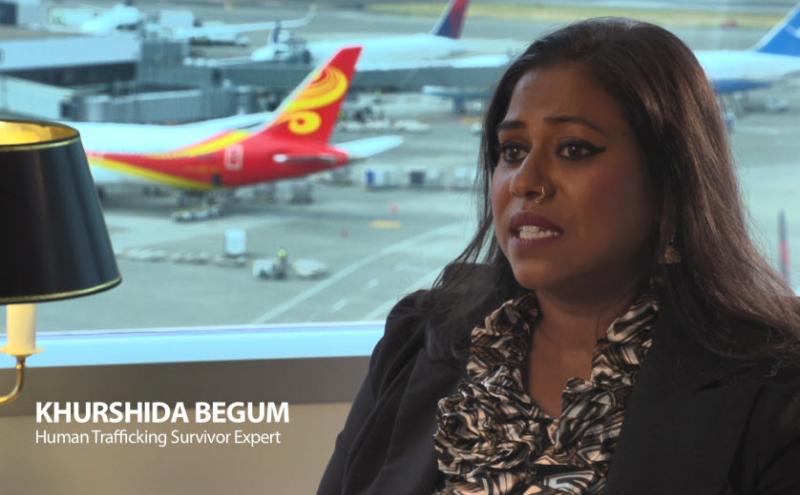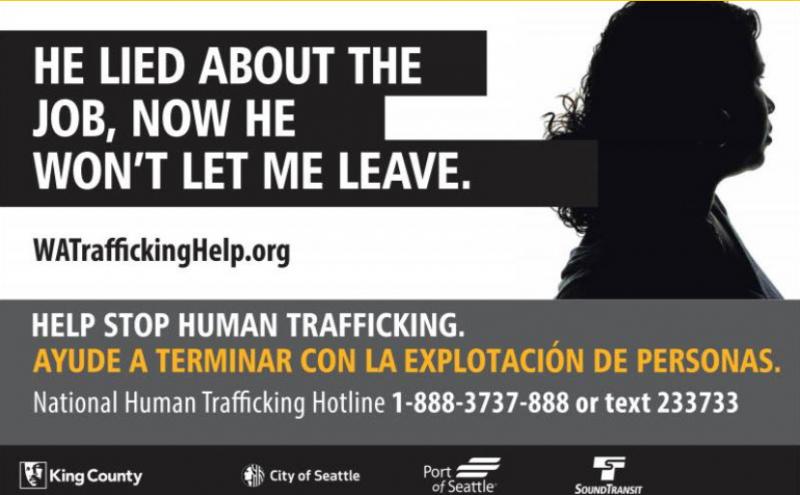
The Port of Seattle has been working to fight human trafficking for many years. Early efforts began in 2007 but the Port amplified efforts in 2018 with a comprehensive, Port-wide strategy that included updated internal policies to the development of awareness training for all staff, we are doing more than ever to demonstrate our strong belief that trafficking is anathema to our core values, particularly around equity and social justice.
The goals of the initiative are to raise public awareness about the nature of human trafficking, how and where it occurs locally; how to prevent and stop it; help identify survivors and promote access to services; and decrease demand through awareness.
The regional Human Trafficking Awareness Campaign plans to renew the effort each January, which is national Human Trafficking Prevention Month.
Here’s what you need to know to help decrease human trafficking in Washington.
1. Human trafficking happens everywhere — in small towns, in large cities, and all over the world. And in Washington state.
According to the National Human Trafficking Hotline, “Human trafficking is a form of modern slavery that occurs in every state, including Washington.”
- In King County, an estimated 500-700 children are forced into prostitution every year
- People as young as nine years old appear on more than 100 websites for soliciting sex in the Seattle area
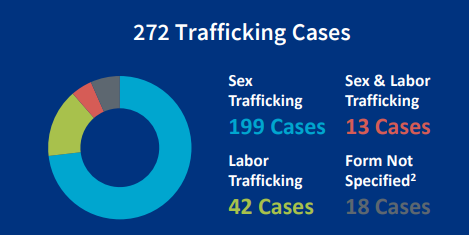
Human trafficking happens all over Washington State.
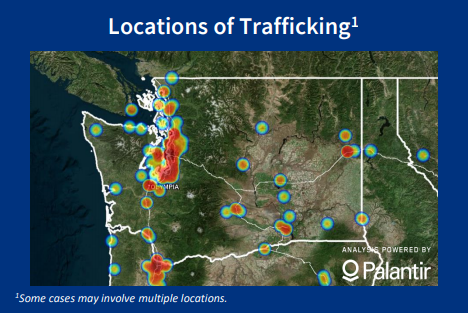
If you think that human trafficking does not or cannot happen in your community, it probably already has.
2. People who are being trafficked are out in public and living in your community
Consider the story of Khurshida Begum who was taken from her small village in Bangladesh at the age of seven. She and eight other children were brought to a 65-acre farm in a rural community in Southwest Washington and forced to work from sunup to sundown caring for animals and doing heavy agricultural labor.
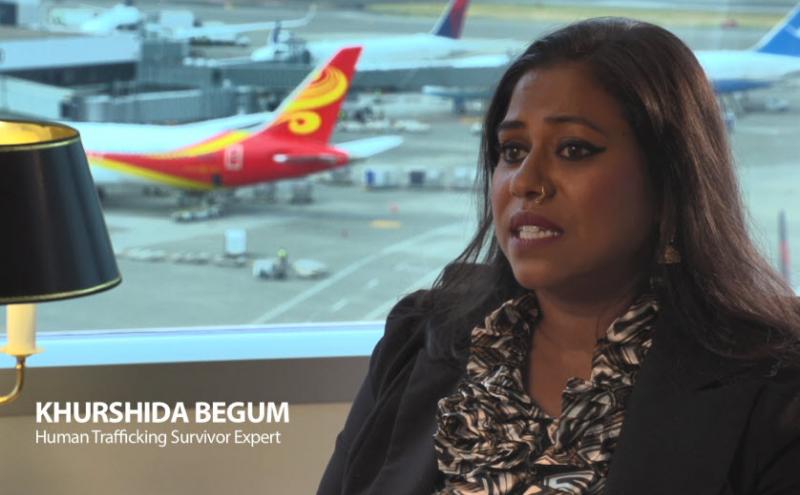
Victims of human trafficking can appear in public places like airports, bus terminals, and in downtown Everywhere, USA.
In 2017, the local media covered a disturbing story about a group of tech workers in Bellevue who operated a prostitution network and would drop off and pick up South Korean women from Seattle-Tacoma International Airport (SEA). The fact that a Port facility was being used for human trafficking inspired the Port to ramp up existing efforts to combat human trafficking and to educate the general public and victims about how you can help.
3. You can help stop human trafficking
What to look for
Look for the following red flags from the U.S Department of State:
- Workers living with their employer
- Poor living conditions with multiple people in cramped spaces
- Unable or unwilling to speak to people without their employer present
- Give answers that seem scripted and rehearsed
- Employers holding their identity documents
- Signs of physical abuse
- Submissive or fearful
- Unpaid or paid very little
- Under 18 and in prostitution
Questions to ask
If you can safely talk to the person, you could ask the following questions:
- Are you OK?
- Can you leave your job if you want to? Or come and go as you please?
- Have you been hurt or threatened if you tried to leave?
- Has your family been threatened?
- Do you live with your employer?
- Where do you sleep and eat?
- Are you in debt to your employer?
- Do you have your passport/identification? Who has it?
Source: U.S Department of State
Who to contact
First, you can tell the person to contact law enforcement or the Human Trafficking Hotline.
If that is not possible, the U.S Department of State gives the following advice on how you can help:
For urgent situations, call 911
- If you believe you have identified someone still in the trafficking situation, alert law enforcement immediately at the numbers provided below. It may be unsafe to attempt to rescue a person who is being trafficked. You have no way of knowing how the trafficker may react and retaliate against the survivor and you.
- You may also want to alert the National Human Trafficking Hotline so that they can ensure response by law enforcement officials knowledgeable about human trafficking.
To help people who are not in immediate danger
If you identify a survivor who has escaped the trafficking situation, there are a number of organizations that can help the person by providing shelter, medical care, legal assistance, and other critical services.
- Call the National Human Trafficking Hotline at 1-888-373-7888
The hotline is a national 24-hour, toll-free, multilingual anti-trafficking hotline where you can report a tip; connect with anti-trafficking services in your area; or request training and technical assistance, general information, or specific anti-trafficking resources. The Hotline is equipped to handle calls from all regions of the United States from a wide range of callers including, but not limited to: people who are being trafficked, community members, law enforcement, medical professionals, legal professionals, service providers, researchers, students, and policymakers.
Source: U.S. Department of State
4. Increased awareness of human trafficking resulted in more tips and reporting
As the owner and operator of an airport and a wide array of maritime facilities, a major employer, and a public sector leader, the Port of Seattle has taken a proactive approach to help reduce the probability that Port properties will be used as a transit point for human traffickers.
In 2018, the Port launched a regional human trafficking awareness campaign with the City of Seattle, King County, Sound Transit, and a variety of other public and private sector partners to educate local residents on the issue and encourage survivors of human trafficking to get the help they need.
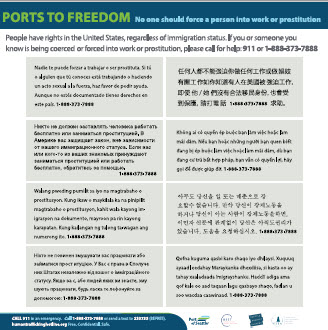
The Port and partners completed major milestones in the comprehensive regional strategy that included a public awareness campaign, training for all Port and SEA staff, and prominent signs in the bathrooms at Seattle-Tacoma International Airport — because it’s one of the few places that a victim can be alone.
- Read how raising awareness combats human trafficking
- Learn about the unified regional campaign to stop human trafficking
Since this program kicked off in 2018, Washington state increased from #13 to #8 in hotline calls. That’s a positive development that demonstrates increased awareness of the problem and that we’re all watching for suspicious behavior.
| 2019 | Number 8 in call volume; increased awareness has resulted in more reports and calls |
| 2018 | Number 13 in call volume |
| January 2018 — Port and regional partners kicked off a regional Anti-Human Trafficking Strategy and Awareness Campaign | |
| 2017 | Number 14 in call volume |
| 2016 | Number 12 in call volume |
| 2015 | Number 11 in call volume |
(Note: Number 1 is the highest ranking of calls to the hotline)

